Editor’s Key Takeaways: Essential Gear for New Photographers

This blog post serves as a comprehensive guide for beginner photographers to select essential photography equipment. It highlights must-have items, emphasizing their significance and utility, ensuring that every new photographer has the right tools to start their journey.
- Prime Lenses: Highly recommended for outstanding image quality and portability. Choose based on your photography style—landscape, portrait, or macro.
- Tripod: Crucial for stabilizing shots, especially in low light or during long exposures.
- Speedlight: Provides additional lighting, enhancing versatility beyond the built-in camera flash.
- External Hard Drive: Essential for backing up and storing high-resolution images.
- Memory Cards (and Holders): Critical for on-the-go image storage; holders help with organization and protection.
- Reflector: Enhances natural light, ideal for portrait and outdoor photography.
- Polarizing and ND Filters: Improve image quality by managing reflections and controlling exposure.
- Bag/Carrying Gear: Protects your equipment and offers convenience while traveling.
- Cleaning Supplies: Necessary for maintaining equipment and ensuring longevity.
- Rechargeable Batteries: Cost-effective and eco-friendly; ensure you never run out of power.
- Color Checker: Vital for achieving color accuracy in your photographs.
This carefully curated list assists beginners in making informed purchases, equipping them with the necessary tools for a successful photographic journey. Each item is selected based on its utility, versatility, and suitability for various photography styles.
When you buy through links on our site, we may earn a commission at no cost to you. We evaluate products independently. Commissions do not affect our evaluations. As an Amazon Associate, we earn from qualifying purchases.
Introduction
As a beginner photographer, choosing the right gear can feel overwhelming. This article provides a detailed photography equipment list that covers all the essential items you need, including cameras, lenses, flashes, storage, and more. It aims to simplify your decision-making process by focusing on what truly matters in your photographic journey.
While a camera is necessary, it is not included in this list. It should be your first photography purchase, as the camera body significantly influences your photography experience and outcomes.
1. Prime Lenses
Most cameras come with a standard kit lens, but a prime lens offers superior image quality and versatility. While they lack adjustable focal lengths, their performance is unmatched, particularly in low-light conditions and for creating beautiful bokeh effects.
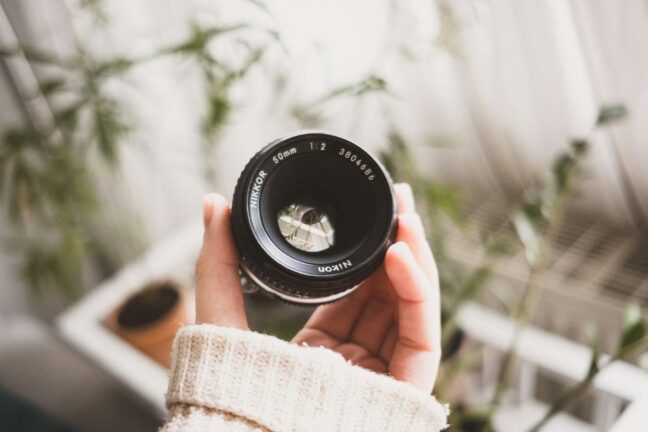
No two lenses are alike—shapes, sizes, and prices vary significantly. Each model serves a different purpose, so consider your photographic direction when purchasing. For instance, prime lenses generally have wider apertures, allowing for more creative control over depth of field.
For landscape photography, a wide-angle lens like the Canon EF-S 24mm f/2.8 STM Lens is ideal. Portrait and macro photographers might prefer a longer focal length, such as the Nikon AF-S 85mm f/1.8G.
For those on a budget, a 50mm lens is an excellent starting point. Third-party options like the Yongnuo YN50mm f/1.8 can be found for around $50, providing exceptional image quality with apertures as low as f/1.8, making it perfect for portraits and low-light scenarios.
2. Tripod
A good tripod is a worthwhile investment for any photographer. It enables long exposures and low ISOs without motion blur, and it allows for precise bracketing for HDR composites. Additionally, a tripod can enhance your composition by allowing you to set up the perfect shot.
Choosing the right tripod depends on your priorities. Consider your need for portability versus strength. A lightweight tripod is easier to carry but may not support heavier cameras or lenses as effectively.
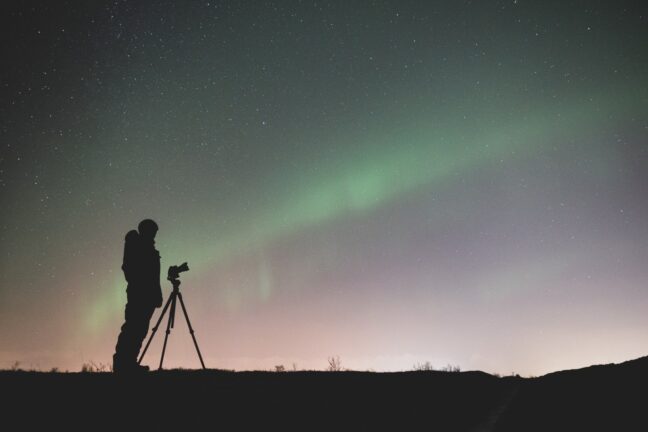
For beginners, the Manfrotto 055 Aluminum 3-Section Tripod is a solid choice, supporting up to 20 lbs/9 kg while remaining lightweight at just over 5 lbs/2.3 kg—ideal for on-the-go photographers. Its versatility makes it suitable for various photography styles, from landscapes to portraits.
This tripod balances strength and portability, helping you discover the features that matter most, such as adjustable height, swiveling heads, and quick-release plates.

3. Speedlight
A speedlight is one of the most valuable tools for photographers. It provides a quick and effective way to illuminate a scene, enhancing your ability to control lighting conditions and create desired atmospheres.
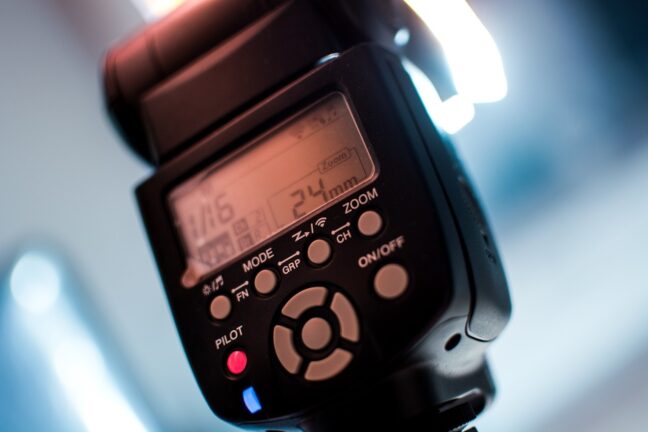
Syncable with your camera’s shutter, a speedlight delivers a powerful burst of light for a brief moment, enabling you to freeze action or illuminate subjects in challenging lighting conditions. A recommended option is the Neewer NW-670 TTL Flash Speedlite, which covers the needs of beginners effectively.
With a Neewer flash, you can achieve stunning results in various settings, from indoor portraits to outdoor events, by mastering bounce flash and fill flash techniques.

4. External Hard Drive
External hard drives serve as essential insurance for your images. Having a backup catalog offers peace of mind in case of computer failure, which can happen unexpectedly. It’s advisable to maintain two or three backups at all times to ensure the safety of your precious memories.
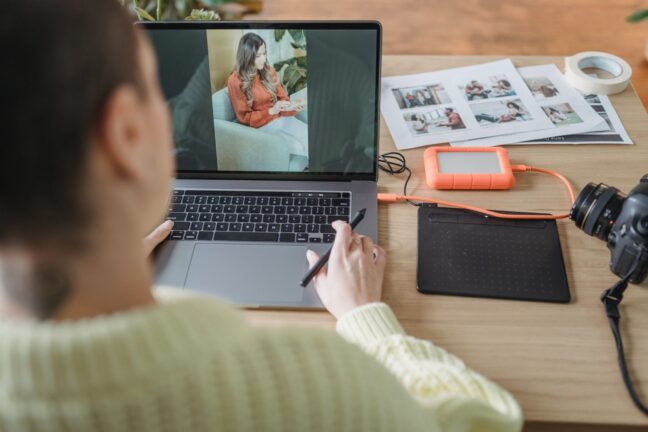
We recommend the WD 4 TB Elements Portable External Hard Drive, as files are growing larger, and 4 terabytes can safely hold tens of thousands of RAW images. Regularly backing up your images protects against data loss due to theft, accidental deletion, or hard drive failure.

5. Memory Cards (and Memory Card Holders)
Memory cards are essential for taking pictures; therefore, a reliable set is a must-have for beginner photographers. Ensure compatibility with your camera, as not all models use the same formats. Always have multiple cards on hand to avoid running out of storage during crucial moments.
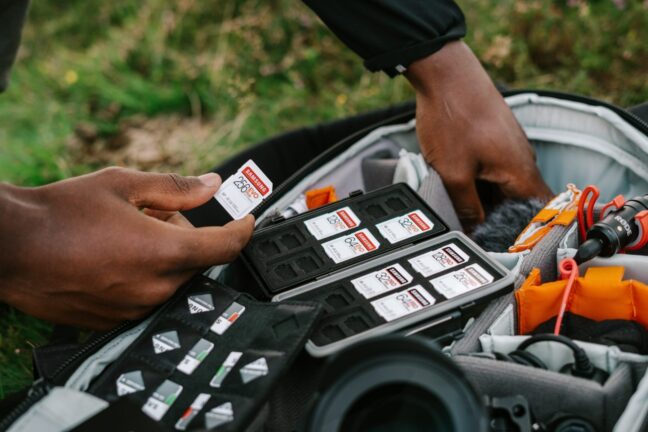
SD cards are the most common, fitting beginner and enthusiast cameras that usually have a single SD slot. They are widely available at convenience stores and specialized photography shops. For high-end cameras, consider using UHS-II SD cards for faster read and write speeds.
Some older or higher-end cameras may use Compact Flash (CF) cards, which are larger and more durable, albeit pricier. Be sure to check your camera’s compatibility with card types before purchasing.
To prevent losing track of these small cards, consider the LYNCA Memory Card Case Holder, which securely stores up to 24 cards (8 SD, 4 CF, and 12 Micro SD/TF Cards), making it easy to organize and transport your memory cards.

6. Reflector
A reflector is an affordable yet vital tool for portrait photography. It directs additional light into the frame, providing varied lighting options that can significantly enhance your subject’s appearance.
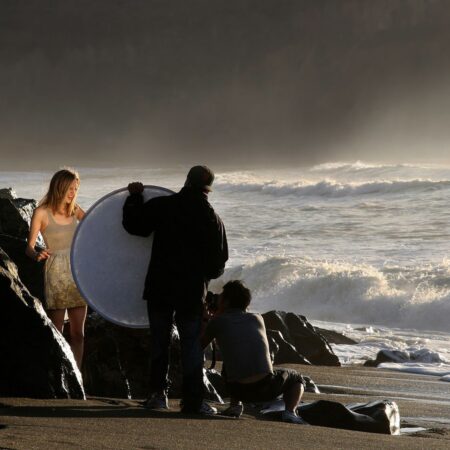
Different reflectors produce varying effects; for example, a shiny silver reflector brightens highlights and shadows, while a white reflector creates a softer light, ideal for delicate skin tones. For those still mastering lighting, the Neewer 43 Inch/110 Centimeter Light Reflector 5-in-1 is a versatile option, offering multiple surfaces to experiment with, making it a valuable addition to your kit.

7. Polarizing and ND Filters
A polarizing filter is invaluable for landscape and nature photography. The Hoya 58mm HD Digital Circular Polarizing Screw-in Filter enhances colors and eliminates reflections from water and glass, resulting in more vibrant images.
Additionally, a neutral density (ND) filter reduces overall light levels, allowing for long exposures in daylight while preserving highlight details. This is particularly useful for creating smooth water effects or capturing motion blur in subjects like clouds or flowing rivers.
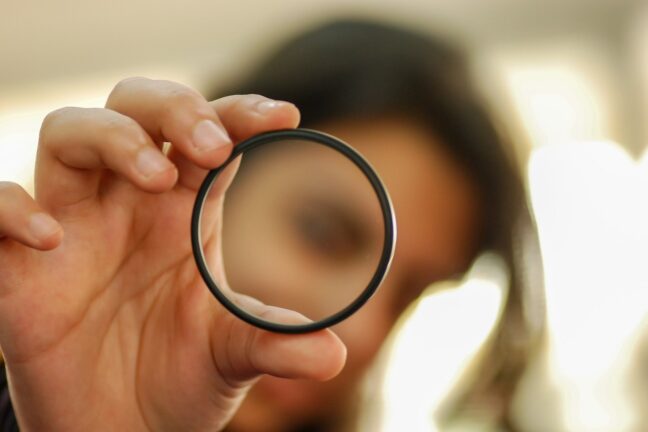
Related Post: Best Polarizing Filters
8. Bag/Carrying Gear
With all this gear, you need a reliable way to store it. Various options are available depending on your needs, from backpacks to hard cases. A well-organized bag not only protects your equipment but also helps you work more efficiently.
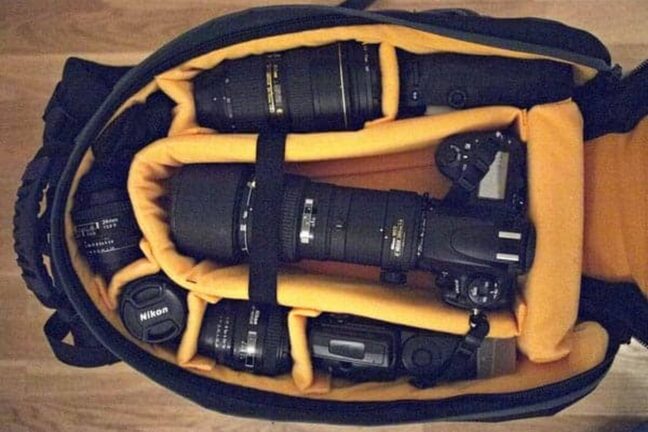
For long-distance travel, consider the Pelican 1510 Case With Foam, which offers robust protection for fragile gear and features wheels and a retractable handle for easy transport. Its waterproof design also makes it ideal for outdoor shoots in unpredictable weather.
If you prefer a lighter option, a backpack like the GOgroove Full-Size DSLR Photography Backpack Case for Camera and Laptop is excellent for both outdoor and indoor use, providing a balance of comfort and functionality.

9. Cleaning Supplies
While maintaining your camera may not be glamorous, it is crucial for saving time and money. Cameras are delicate, and dirt buildup can cause significant issues, affecting image quality and camera performance.
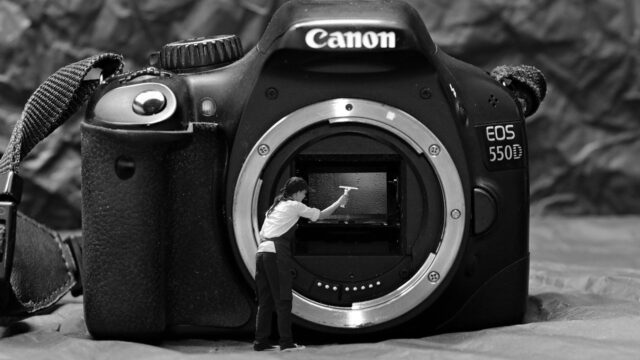
Using improper cleaning methods or low-quality supplies can cause irreparable damage. We recommend the Altura Photo Professional Camera Cleaning Kit, which includes all essential cleaning tools—microfiber cloths, cleaning spray, lens brushes, and more—to keep your equipment in top condition and extend its lifespan.

10. Rechargeable Batteries
Having run-of-the-mill AA batteries is always useful. They power tools like speedlights and remotes, allowing you to shoot continuously without interruptions, particularly during long sessions or events.
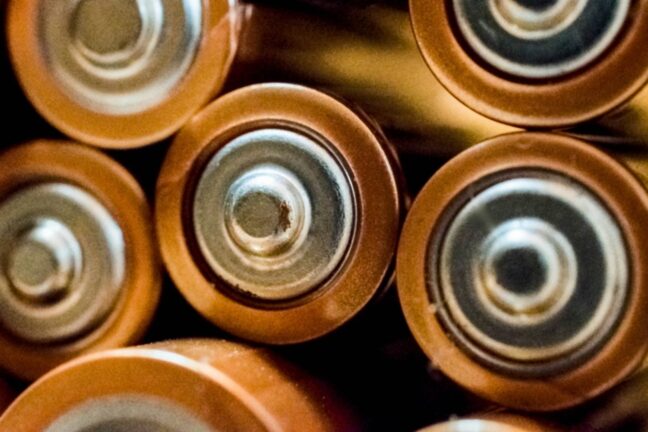
Additionally, using AA batteries can revive a dead camera via a battery grip. The EBL Rechargeable AA Batteries With Battery Charger are highly recommended among photographers for their reliability and longevity.
It’s wise to stock up on extra batteries and chargers specific to your camera. Since many manufacturers use proprietary equipment, check compatibility before purchasing to avoid any inconvenience during shoots.

11. Color Checker
Lighting conditions can vary widely, affecting image accuracy. A color checker is essential for maintaining consistent colors, especially in portrait and product photography. It allows photographers to achieve true-to-life colors and enhance their post-processing workflow.
Place the color checker in the scene to adjust white balance in post-processing using its gray values. This ensures that colors appear natural and vibrant, regardless of the lighting conditions at the time of shooting.
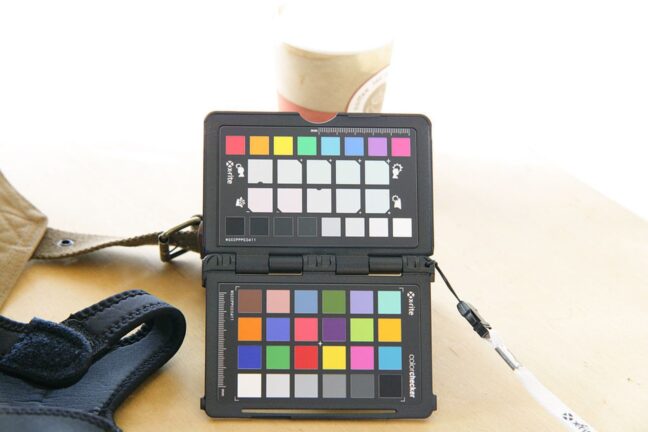
While not the most critical piece of equipment, a color checker is invaluable for professional work, ensuring color accuracy. The Datacolor SpyderCHECKR 24 is a practical option. Additionally, referencing a photograph of the color grid can help eliminate color casting in post-processing, saving you valuable editing time.
This tool can also help apply tints for consistent color grading, enhancing the overall quality of your images.

Photography Equipment List for Beginners: Conclusion
This basic list of gear for beginners is designed to assist you in your photography journey. The equipment you choose ultimately depends on your budget, preferences, and the type of photography you pursue. While it’s tempting to splurge on high-end equipment, keeping your options open and avoiding unnecessary expensive items can lead to a more fulfilling and sustainable photographic experience.
For more extensive guides, check out our photography gear buying guides. These resources will help you navigate through various equipment options and make informed decisions tailored to your unique photography style.
